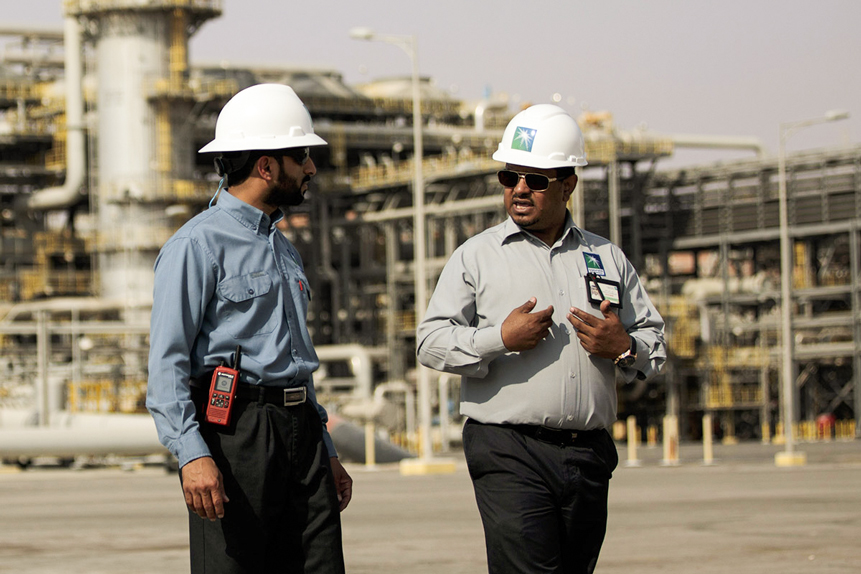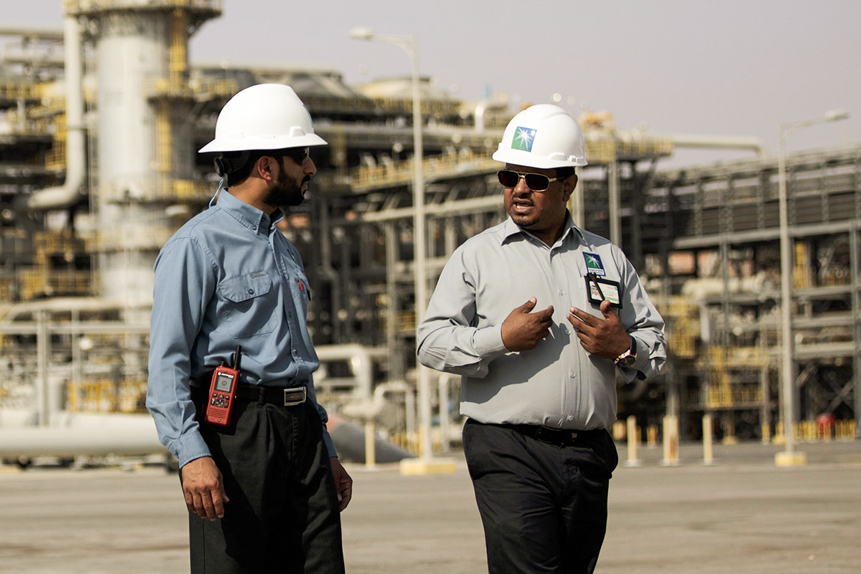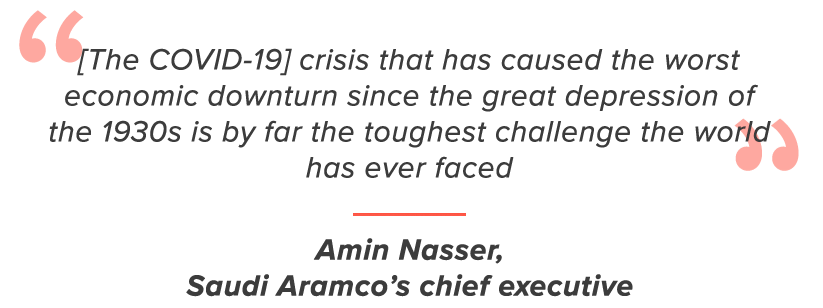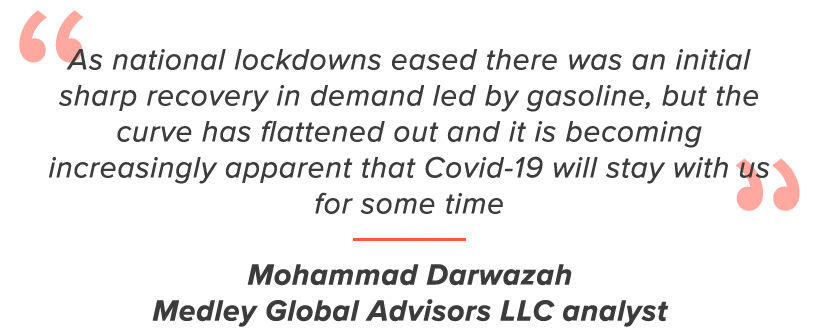
Thursday, September 24, 2020
Saudi Aramco’s share price: Is the world’s most valuable company at risk?
تم إعداد هذا المنشور من قبل سنشري للاستشارات


Saudi Aramco’s [222] share price is generating a lot of interest at the moment. The petroleum and natural gas firm is once again the world's most valuable company by market capitalisation, having regained the top spot from Apple. The two are the only companies to have reached valuations of $2trn, with Saudi Aramco achieving this feat last September after its IPO.
While the tech sell-off has boosted Saudi Aramco’s share price and helped the state-owned Saudi oil major take back the crown, it's facing its own set of problems. Falling oil prices, substantial losses and the coronavirus threat are among the headwinds facing the company.
While Saudi Aramco’s share price has proven resilient recently, that could be about to change.
What's happening with Saudi Aramco's share price?
Saudi Aramco's share price has climbed almost 8% since 23 August, despite the company suffering staggering second-quarter losses.
In the second quarter, Saudi Aramco saw net income come in at $6.6bn, a 73% fall from the same period last year. This bruising performance can be chalked up to the coronavirus outbreak which has seen oil demand and prices plummet.
Saudi Aramco, however, pressed on with its promise of a $75bn dividend, betting that the global economy would recover. Yet, it has also been forced to make around $1bn in cost savings, while acknowledging that annual capital spending will be ‘significantly lower’ than the $40bn to $45bn initially forecast.
"[The COVID-19] crisis that has caused the worst economic downturn since the great depression of the 1930s is by far the toughest challenge the world has ever faced,” said Amin Nasser, Saudi Aramco’s chief executive.


Can Saudi Aramco maintain the top spot?
The future of Saudi Aramco's share price — and its position as the most valuable company in the world — is largely tied to oil prices, which have had a turbulent 2020 so far.
In January, Brent crude — the benchmark for oil prices — had been trading at $70 a barrel, but by April that had dropped to $20. In response, OPEC+ agreed to cut production from 9.7 million barrels a day to 7.7 million in July. While a partial recovery in prices did take place, September has seen crude slip below $40 a barrel for the first time since June.
“There were some major assumptions built in on where demand and the recovery would be now, and it just hasn’t happened,” said Mohammad Darwazah, an analyst at research firm Medley Global Advisors LLC. “If I’m OPEC and if I’m Saudi Arabia, I would be concerned.”
Those assumptions included an economic recovery stimulating oil demand. Yet oil surpluses remain high, with some trading houses even hiring oil tankers to store barrels. Fears of a second wave of the virus are also hindering any recovery in Saudi Aramco’s share price.
"As national lockdowns eased there was an initial sharp recovery in demand led by gasoline, but the curve has flattened out and it is becoming increasingly apparent that Covid-19 will stay with us for some time."


Where next for Saudi Aramco's share price?
Casting doubt on Saudi Aramco holding on to the top sport is The International Energy Agency’s (IEA) September oil report. A sobering read, the report states oil demand is likely to remain weak compared to 2019.
"A resurgence of Covid-19 cases in many countries, local lockdown measures, continued teleworking and the weak aviation sector led to downward revisions of our demand estimates for 3Q20 and 4Q20 by 0.1 mb/d and 0.6 mb/d, respectively," the agency said.
For the first half of the year, demand was 10.5 million barrels per day below last year’s levels. The agency also said oil demand in 2020 would now fall by 8.4 mb/d compared to 2019.


If oil demand continues to fall, Saudi Aramco's share price could come under increased pressure. The situation also has repercussions for Saudi Arabia itself, which is dependent on the oil sector for its income. While the downturn in oil prices isn’t severe enough for more production cuts just yet, the question is how far they have to fall before such action is taken:
“For the men who reside in the palaces and the presidential halls, there is a price at which they make a panicked phone call,” said Helima Croft, head of commodity strategy at RBC Capital Markets LLC. “The question is, what is the price?”
When that call does happen, Saudi Aramco’s share price and earnings could take a hit.
Source: This content has been produced by Opto trading intelligence for Century Financial and was originally published on cmcmarkets.com/en-gb/opto
Disclaimer: Past performance is not a reliable indicator of future results.
The material (whether or not it states any opinions) is for general information purposes only and does not take into account your personal circumstances or objectives. Nothing in this material is (or should be considered to be) financial, investment or other advice on which reliance should be placed. No opinion given in the material constitutes a recommendation by Century Financial or the author that any particular investment, security, transaction or investment strategy is suitable for any specific person.
Century Financial does not endorse or offer opinion on the trading strategies used by the author. Their trading strategies do not guarantee any return and Century Financial shall not be held responsible for any loss that you may incur, either directly or indirectly, arising from any investment based on any information contained herein.
















